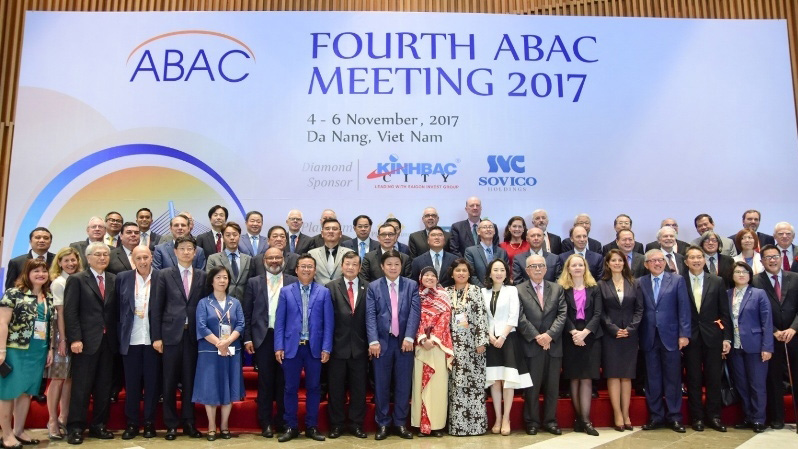


|
Members of the APEC Business Advisory Council In their
annual report to be submitted to the leaders, released on November 6, they
will call on leaders to show leadership on further liberalisation of trade in
goods and services as well as investment flows. These issues will be
discussed by ABAC members in their annual dialogue with APEC leaders on
November 10.
"This
means tackling structural reforms and non-tariff barriers, encouraging
cross-border investment and maintaining the commitment to make the Free Trade
Area of the Asia-Pacific a reality,” said Dung.
The
report also highlights the imperative to help women participate more broadly
in APEC economies, and to help micro, small and medium enterprises to
participate in trade.
Dung also
affirmed the strong commitment of the business community to partner with
governments to ensure a prosperous Asia-Pacific region. Meanwhile,
Anthony Nightingale from the ABAC’s Connectivity Working Group, said digital
economy and digitalization is one of the highlights of the ABAC’s report.
The
council has developed programmes to help MSMEs and empower them for further
participation in the international economy, he said.
Regarding
the role of women, he said they are an important part of APEC member
economies.
The
council has established organisations and groups, focusing on issues that
women are facing, such as gender.
This is
one of the issues ABAC places concern in the APEC 2020 roadmap, he said.
|